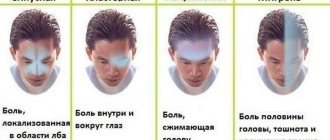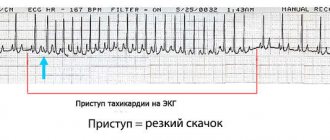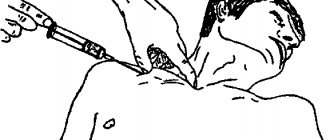There are a huge number of situations when you feel dizzy. In particular, people encounter a similar problem when they suddenly change their body position, for example, getting up from a sofa or chair. And here many questions arise: why is this happening and is this not a symptom of some kind of pathology?
Answered by Elen Mkhitaryan, Ph.D., neurologist, senior researcher at the Laboratory of General Geriatrics and Neurogeriatrics of the Russian Gerontological Research and Clinical Center, Russian National Research Medical University named after. N.I.Pirogov Ministry of Health of Russia :
— Let's start with the fact that dizziness is a symptom that can occur in many diseases. When they begin to treat dizziness, this is wrong, because it is necessary to treat the diseases that led to it. And these are more than 80 diseases and conditions.
What folk remedies will help with weakness and dizziness? More details
What to do if you feel dizzy when suddenly getting out of bed
If a person experiences regular dizziness and changes his position without visiting a doctor, you can get rid of unwanted symptoms on your own. To do this, you can follow a few simple tips:
- Rise from bed not abruptly, but carefully and slowly;
- Set up a proper diet, worry less, walk outside more, have good sleep;
- Eat a lot of foods containing iron;
- Do physical exercise at a moderate pace, you can do therapeutic and preventive physical exercises;
- If the nasopharynx is inflamed, do not stop treatment so as not to worsen the situation with dizziness.
In addition to treatment, there is also a preventive course, thanks to which you can avoid the development of a destructive process in the future and be healthy. After sleep, when getting out of bed and feeling dizzy, do simple exercises:
- Focus your gaze on one thing that is not moving and wait until your head stops spinning;
- In the middle of the forehead, press the point with your finger for 10 seconds, massaging it smoothly;
- Massage your head, neck, face;
- Do breathing exercises. To do this, you need to slowly exhale and inhale air; at the same time, you can inflate your stomach and retract it.
If after these exercises dizziness does not go away, or if a person gets stronger when standing up in bed or in a chair, then try to limit yourself from going outside and urgently call a specialist to get qualified help. After the condition returns to normal, it is necessary to undergo a full diagnosis in order to discover the nature and causes of such symptoms, otherwise there is a risk of progression of symptoms.
How to treat dizziness when suddenly getting out of bed
When dizziness interferes with your life, you need to get rid of this unpleasant symptom. There are several methods for treating this disease. Treatment is prescribed by a specialist depending on the cause and the presence of other symptoms. The main treatment methods include primarily:
- Medicinal course of treatment - medications are prescribed by the doctor, which normalize the action of the circulatory and vestibular systems, restore brain function, and stop dizziness, which is caused by kinetosis.
- Massage can be of several types - classic, manual, acupressure. With its help, areas in which the intensity of dizziness in the neck is reduced are used.
- Physiotherapy – thanks to specially designed exercises, the functioning of the circulatory system in the brain area is restored, which reduces the incidence of dizziness.
Therapy with needles and aromas - refers to alternative medicine, due to which spasms in the arteries are relieved and the functioning of the circulatory system is normalized.
If you experience dizziness when getting out of bed, then it is better to follow a few tips:
- Try to get out of bed or chair carefully;
- Normalize your diet, eat more healthy foods;
- Refuse harmful viewing of telecommunications;
- Walk more in the fresh air.
After undergoing a full examination of the body and finding out the causes of dizziness, specialists, based on the tests obtained and the results of the procedures performed, prescribe complex therapy. If a patient experiences dizziness when getting out of bed or getting into bed, a course of treatment is often prescribed, consisting of drug therapy and additional:
- Manual method. It includes massage and needle piercing.
- Therapeutic exercise, reflexology.
- Aroma therapy. Due to the entry of essential oil odors into the body, tension in the vascular system is relieved.
Medicines are often used that restore and normalize the functioning of the vestibular apparatus, improve the functioning of the arteries and remove factors that interfere with the functioning of the systems. If the cause is a disease of the heart or vascular system, then non-steroids and muscle stimulants are prescribed.
Thanks to this and timely assistance to the body, you will be able to save yourself from the inconveniences arising from dizziness, predict and anticipate its further occurrence.
Main reasons
In medical practice, there are a number of reasons why you feel dizzy when standing up.
Possible ones include the following:
- Anemia. Dizziness when you stand up occurs as a result of a lack of oxygen that supplies the brain and tissues.
- Severe fatigue, overwork.
- Dehydration of the body.
- Poor nutrition. Doctors diagnose such causes quite often, especially in people who use diets or are unable to eat normally as a result of a busy work day. The body simply does not receive useful substances, it is exhausted, and you may feel slightly dizzy when standing up.
- Emotional tension and frequent stress.
- Failures or diseases of the vestibular apparatus.
- Use of medications. Feeling dizzy due to the side effects of certain medications, especially if they are used for a long time or they are very strong.
- Diseases of various systems in the body. The cause may be in the nervous, circulatory or vascular system. In this case, the tissues cannot be properly supplied with oxygen, and if you suddenly get out of bed, you will feel dizzy.
- Injuries to the head, neck or spine.
- Endocrine system disruptions. The reasons why ailments appear are hidden in the hormonal background, when a person’s body produces large or insufficient production of certain hormones.
- Diseases of the inner ear.
- Pathologies of the nervous system.
- Visual fatigue. Similar reasons can be in eye diseases, as well as in people whose work is related to observational activities. In some cases, workers at the computer experience dizziness when standing up.
- The release of adrenaline into the blood can cause dizziness when standing up suddenly.
- The symptom occurs in women during menopause, pregnancy and menstruation due to hormonal changes in the body.
- Adverse habits can also contribute to the deterioration of the condition. For example, smokers dilate blood vessels, and people who abuse alcohol develop problems in the nervous system and vestibular apparatus.
- Brain tumors.
- Migraine attacks.
- Poisoning from food or chemicals.
There are many reasons why you feel dizzy when getting out of bed, so for an accurate diagnosis it is important to consult a doctor. . Only a doctor can find the true provoking factors, and based on the data obtained, the correct treatment is prescribed
Only a doctor can find the true provoking factors, and based on the data obtained, the correct treatment is prescribed.
Dizziness is not always the result of pathological problems. If, when standing up suddenly, dizziness appears, which quickly passes and does not occur constantly, then this is not a symptom of the disease.
The reason is that the body cannot coordinate as quickly. In this case, a few seconds are enough for the condition to return to normal.
Treatment
These are often the following methods:
- reflexology;
- relaxing treatments;
- physiotherapy;
- aromatherapy;
- medications: antihistamines, blood pressure normalizers, vestibulopathic.
Self-medication is not recommended, since the cause may be more serious than the person himself assumes.
Diagnosis and prevention of dizziness
There is a kind of test that you can do yourself and identify orthostatic hypotension.
To begin with, measure your pulse and, if possible, your blood pressure several times while standing. Having received an average stable result, they do the same while lying down. Then you need to stand up and repeat the measurements in a minute, three, five and ten. This is done in order to understand how quickly the pressure is restored when blood is redistributed throughout the body.
The test results are assessed as follows:
- pulse quickens to 11 beats - normal;
- from 12 to 18 strokes - there are some problems with pressure, but this is not dangerous;
- from 19 beats or more - there is a risk of fainting when standing up, and this indicates poor vascular function.
Of course, in any case, it would not be a bad idea to see a therapist, neurologist or cardiologist with such a problem, especially if dizziness bothers you often. You may not be aware of the onset of heart problems. Or, if it is in order, about the “pranks” of your autonomic system.
If you know that you naturally have low blood pressure, you are relatively healthy and such attacks do not occur often, then no treatment may even be required
But you still need to pay attention to your body and try to prevent dizziness.
Precautionary measures:
- It is not recommended to stand up abruptly, sit down after lying down, straighten up and change body positions;
- After you wake up, do not jump up, but first take a few deep breaths, stretch, you can massage your face, arms, legs;
- If you need sharp repeated repetition of movements, then start this cycle with smooth and unhurried actions, gradually increasing speed and sharpness;
- Do not sit in one position for a long time at the computer or TV. Periodically, smoothly and leisurely get up, warm up, walk around the room;
- Before standing up, be careful not to hit anything in case you do start to feel dizzy.
Many people are afraid of such dizziness, but this may not always mean something terrible. Only a doctor can tell you what exactly is happening to you.
Did you find the answer in the article? Share with your friends:
Behavioral tactics for dizziness
If you have osteochondrosis, you can quickly get rid of dizziness by changing your body position - turning on your side and reducing the load on the vertebral artery, using a higher or harder pillow for sleeping.
If an attack of dizziness takes you by surprise, for example, when you get up from a bench in a park, and you need to quickly stabilize your condition, you can use several techniques:
- Slowly and calmly inhale shallowly several times, holding the air in your lungs for a couple of seconds.
- Select a static object, focus your gaze on it and watch for about 30 seconds.
- Sit on a bench, even lie on your side, wait five minutes and get up, this time - slowly and carefully.
If you feel dizzy when you stand up, you should avoid sudden movements. If you experience severe discomfort, it is better to seek help from passers-by than to try to get to your home or doctor on your own.
Dizziness as a symptom of illness
Dizziness when getting out of bed may be accompanied by other specific symptoms that vary depending on the disease. This may include darkening of the eyes, nausea or vomiting, profuse sweating, fainting, and much more.
In this case, you will no longer be able to do without contacting a competent specialist.
What diseases cause you to feel dizzy when standing up?
- Ear diseases. The inner ear is one of the most important elements in the body. It is filled with liquid, with the help of which we accurately determine the position of our body in space. But when inflammation or injury to the ear occurs, the amount of fluid changes in volume and blood flow is disrupted. The pressure in the inner ear increases, which leads to dizziness, which is accompanied by illusory sounds, noise or ringing, congestion, and deafness. Such symptoms indicate infectious inflammation, traumatic brain injury to the temporal part, and a possible brain tumor.
- Dysfunction of the vestibular apparatus. As you know, it is this structure that provides a sense of balance. It transmits impulses to the brain about the position of the body in space. The brain responds by adjusting muscle function depending on body position. And if the vestibular apparatus does not function correctly, then you may feel dizziness and nausea.
- Cervical osteochondrosis. It is characterized by calcification of the intervertebral joints, which, when moving the head, can provoke stretching and damage to nerves and blood vessels. Because of this, the brain may not receive the required portion of oxygen, which will manifest itself as dizziness when getting out of bed. Attacks are observed during periods of exacerbation and are aggravated by hypothermia, excessive stress and long periods of sitting in a sitting position.
- Disturbances in brain activity can cause dizziness. This happens most often due to vascular dysfunction. With various types of brain anomalies, congenital or acquired, the vessels are no longer able to ensure the distribution of blood flow in the required volume and at the required speed. This leads to oxygen starvation. There may be several root causes: concussion, epilepsy, tumor, cerebral atherosclerosis. Dizziness during a concussion is the first symptom. Therefore, if you have a similar symptom, remember if you have had any head injuries recently. After all, a mild concussion can manifest itself after some time.
- Diseases of the cardiovascular system. Failure of the heart rhythm leads to ailments such as dizziness when rising from a horizontal position. At the same time, blood is not produced in the required volume, and its movement is intermittent. The required amount of oxygen is not delivered to the brain, which causes pre-fainting conditions. Causes: vegetative-vascular dystonia, heart disease, hypertensive crisis.
- Poisoning. General intoxication causes a painful condition, in particular accompanied by dizziness.
Dizziness with the diseases and injuries listed above is only their symptom. Therefore, the treatment process, as a rule, is aimed at combating not dizziness, but the pathology that caused it.
First, you need to contact a therapist who will prescribe tests and instrumental examinations. Based on their results, he will make a diagnosis or refer you to another doctor with a more narrow specialization.
When changing body position
The head can feel dizzy when changing body position for a variety of reasons, including neurological diseases, problems with the musculoskeletal system, and much more.
The main reasons for this unpleasant condition are as follows:
- neuritis;
- pathological changes in the inner ear;
- hypotension;
- functional failures in the vestibular apparatus;
- brain diseases, including pathologies in the cerebellum;
- neurosis;
- diseases of the central nervous system;
- diabetes;
- heart diseases.
There are several types of dizziness that are characteristic in a certain situation:
- Feeling dizzy when standing up suddenly.
If such a condition occurs during a sharp rise, there is a possibility that the person has a hidden cardiovascular pathology.
Staying in one position for a long time leads to blood stagnating below, a sharp rise instantly increases the load on the vascular system, and in case of hidden diseases, blood pressure in such cases begins to quickly fall. There is not enough oxygen in the body, and as a result, the head begins to spin.
- Feeling dizzy when you lie down.
WE RECOMMEND SEEING: Why and how is a brain puncture performed?
Such sensations, which begin in a person while lying down, often indicate serious health problems. Diseases accompanied by a similar symptom:
- injuries to the head, neck, back of the head, spine;
- infections of the inner ear, accompanied by inflammation and hearing impairment;
- traumatic brain injuries, associated symptoms - general weakness, attacks of nausea, vomiting;
- stroke accompanied by speech and coordination disorders;
- an attack of osteochondrosis affecting the cervical region, accompanying symptoms - numbness of the limbs, headache, disturbance of gait.
An unpleasant condition is a reason to urgently consult a doctor to diagnose the disease.
- Women and men feel dizzy.
A woman may feel dizzy during pregnancy, during menstruation, or during menopause. Malaise is directly related to a sharp increase or decrease in the amount of hormones in the body.
Men are susceptible to such conditions before the onset of nocturic syncope, which can occur after nighttime urination.
Both sexes may experience unexpected dizziness during adolescence; the sensation occurs due to changes in the body and rapid growth.
Frequent attacks accompanied by nausea or vomiting should alert you. Serious pathologies may be accompanied by accompanying symptoms:
- changes in heart rhythm;
- fainting;
- attacks of headaches;
- tremor of the limbs;
- muscle pain;
- sudden changes in blood pressure;
- visual and hearing impairments;
- general weakness.
Additional recommendations
In order for the treatment to be effective and not take a long time, it is important to follow some recommendations. So, the following measures will help speed up recovery: . proper nutrition and avoidance of junk food; exclusion of coffee and strongly brewed black tea from the diet (it is better to drink only green tea); moderate physical activity (it is also important to spend enough time walking in the fresh air); refusal of alcoholic beverages and cigarettes; visiting the pool (in the absence of contraindications); adherence to sleep and rest patterns.
- proper nutrition and avoidance of junk food;
- exclusion of coffee and strongly brewed black tea from the diet (it is better to drink only green tea);
- moderate physical activity (it is also important to spend enough time walking in the fresh air);
- refusal of alcoholic beverages and cigarettes;
- visiting the pool (in the absence of contraindications);
- adherence to sleep and rest patterns.
How to warn
In addition to treating the dangerous condition, certain rules should be followed so that dizziness when standing up does not become a constant problem. A person should:
- go to bed on time, the period of night sleep should be at least seven hours;
- purchase an orthopedic mattress and pillow to prevent the development of pathologies of the musculoskeletal system;
- do not read or watch TV in a horizontal position to avoid increased eye strain;
- do not make sharp turns of the body, rise slowly and smoothly from the bed and from a sitting position;
- promptly treat infections that can cause inflammation of the ears;
- maintain a routine, alternating work and rest time;
- include mandatory sports, therapeutic exercises, and walks in the fresh air in your daily routine;
- Eat well, avoiding strict diets that are harmful to metabolism.
How to know if you are in danger
If you feel dizzy when you get up from your squat while following a strict diet, then the only culprit is a lack of glucose in the blood. If you received a scolding from your superiors or spoke in front of a large audience, then the symptom described that arose as a consequence should not be frightening either - in this case it is the result of a large release of adrenaline, which provoked vasospasm.
But if, after suffering from otitis media, you experience severe dizziness with cold sweat, nausea and vomiting, or your hearing decreases, and whistling or noise appears in your ears, then you should immediately consult a doctor. The same actions must be taken if, along with dizziness, severe headaches are observed, accompanied by photophobia, nausea and tinnitus. And if the patient also has impaired coordination, vision and sensitivity, then reluctance to see a doctor can cause serious consequences.
It is not difficult to understand whether you need to go to a specialist. Remember that any additional symptoms are a reason to be wary!
Atherosclerosis
Arterial disease accompanied by the deposition of cholesterol plaques directly inside the vessel itself is called atherosclerosis. The moment when you begin to feel dizzy with such an illness indicates only one of the symptoms of its manifestation. With atherosclerosis, headaches, memory impairment, weakening of associative functions and deterioration of the thought process are possible. Many other symptoms may be present.
Causes of dizziness
Frequent attacks of dizziness always have a factor that provokes them. Patients are perplexed as to why they feel some discomfort when getting out of bed, when getting up abruptly, when getting up from their haunches, or when climbing stairs is difficult. A symptom such as dizziness occurs in many diseases.
Age-related changes in women - menopause
Menopause is hormonal changes in the body of women over the age of 45, when the reproductive function of the body gradually fades away. The level of estrogen and progesterone decreases, and an unusual lack of them causes ailments of various types. Some tolerate it well, while others need time and just want to lie down.
Poisoning
During poisoning, the body tries to fight poisons and toxins, which triggers a process that fights intoxication. Harm is caused to the entire body, since toxic substances are carried by the blood to all organs. A defensive reaction is activated, the symptoms of which are nausea, vomiting, dizziness, and bowel dysfunction.
Tumors in the brain
Neoplasms in the brain provoke circulatory disorders and increased intracranial pressure, and in the later stages, when metastases begin, along with dizziness, vomiting, loss of coordination, and mental disorders occur. In this case, dizziness does not go away even in a lying position.
Dehydration
Maintaining water balance is not only advice from nutritionists, it is a mandatory requirement for maintaining normal functioning of the body. Low water consumption thickens the blood, impairing its mobility through the vessels, and after this, all organs experience insufficient blood circulation, and the brain is oxygen starved.
Disorders of the vestibular apparatus
The vestibular system tells the brain about the position of our body. If it becomes inflamed, it is attacked by viruses, then the patient experiences false sensations that knock him out of balance: pain in the back of the head, ringing in the ears, hearing loss, vertigo, turning and moving the room.
Severe stress, overwork
Severe stress, overwork, and neurosis negatively affect the health of the entire body. A feeling of constant anxiety and fatigue force the nervous system to work in an unusual mode.
The brain cannot relax, which is why constant tension provokes intracranial pressure, dizziness, and irritability. The head seems to be compressed, the frontal lobe is painful (if it hurts to press, then you need to rule out sinusitis).
Head and inner ear injuries
They provoke a number of changes in the brain, blood supply is disrupted, blood pressure increases, etc. It is painful to tilt and turn the head in any direction. Dizziness due to injury to the inner ear is explained by damage to areas of the vestibular analyzer, which disrupts some of the functions.
Severe blood loss
Insufficient blood volume provokes a number of complications in the normal functioning of organs. The brain immediately experiences oxygen starvation. From the cardiovascular system, there is a disturbance in the heart rhythm, blood pressure drops, and the body goes numb.
Diseases of the circulatory, cardiovascular or nervous systems
Pathologies of the circulatory and cardiovascular systems are the main reason for dizziness. The inability to supply the body with the necessary amount of oxygen and nutrients, frequent failures and disorders gradually worsen the functioning of brain cells.
Men are more likely to suffer from heart disease and high blood pressure. Teenagers experience weakness due to hormonal levels affecting the vascular system.
Use of medications
Some medications have side effects such as dizziness. This may be due to the specific treatment provided by the drugs. This also occurs due to an overdose, when intoxication begins.
Questions that the doctor will ask at the appointment
- How to describe your condition without using the word “dizziness”?
- When you feel a fall, in which direction are you “thrown”?
- Is there a feeling of fear when you feel dizzy?
- Is this symptom constant or intermittent? Are the episodes quick or long?
- Does dizziness begin abruptly or gradually?
- Have you had a history of head and neck injuries?
- How does the symptom behave in a sitting, lying, standing position, or when turning the head?
- Is there any hearing loss or decrease? Tinnitus?
- In the last week before the onset of the disease, were there any signs of acute respiratory viral infection?
- How often do headaches occur?
- What medications do you take regularly, or did you take them for the first time before the attack?
What is the danger and when should you see a doctor?
Dizziness is a fairly common complaint among patients when visiting a doctor.
This symptom can occur due to a large number of reasons:
- If dizziness occurs infrequently and without accompanying symptoms, then there is no danger to health.
- If the reason lies in overwork , stressful situations, fasting, poor nutrition, etc., then you need to bring your well-being back to normal, your daily routine and diet, and dizziness will disappear on its own.
- If dizziness occurs frequently and is accompanied by multiple symptoms, you should consult a doctor as soon as possible. In case of fainting, numbness of the extremities, nausea, vomiting, it is necessary to call an ambulance. Only a doctor can make a correct diagnosis after conducting the necessary examination.
Diseases or disorders of the inner ear
The spatial location of the body helps a person to determine the fluid in the cavity of the inner ear. But if it is damaged or inflamed, the quantitative fluid content may increase or the blood flow in it may be disrupted. In this case, additional symptoms of dizziness may appear - a feeling of “fullness” or congestion is felt, and a ringing or noise is heard inside the ear. Sometimes such manifestations are accompanied by ear pain.
Other methods.
As a preventative measure, it is recommended to do exercises that train the vestibular apparatus. The exercises consist of changing the posture that causes dizziness. Perform at least five times a day, for several minutes.
Classic option:
- The patient assumes a sitting position on the bed.
- Turns his head to the left.
- Slowly lies down without changing the position of the head.
- Slowly sits down, while turning his head to the right.
- Repeats the entire procedure, turning his head in the other direction.
In case of an unexpected attack, massage of the temples will help. It is performed as follows: place your index fingers on your temples, massage in a circular motion 10 times clockwise, 10 times counterclockwise. To enhance the effect, you can massage your earlobes.
Slow squats help cope with an unpleasant condition.
Eye exercises can eliminate dizziness. This is done like this: at a slow pace, leaving your head motionless, look up and down (at least 20 times), increase the pace. Slowly begin to move your eyeballs from left to right (at least 20 times), leaving your head motionless, and increase the pace.
What can you do to help during an attack?
Therapy for an unpleasant condition may include a whole range of measures based on the diagnosis of the disease.
Serious illnesses are treated with medication. The drugs are prescribed by the doctor, individually selecting the duration of use and dosage:
Medicines
If the attack began unexpectedly, the following medications will help relieve the unpleasant condition:
- Meclozine.
- Diazepam.
- Betahistine.
These medications relieve unpleasant symptoms that occur when changing body position.
Taking antidepressants or drugs that improve blood circulation will also help.
Attacks of nausea or vomiting are well relieved by the following medications: Domperidone, Cerucal, Metoclopramide.
Folk remedies
If you suddenly feel dizzy, fresh ginger will help. A small piece of medicinal root should be chewed slowly and swallowed without drinking water. The spice will not only invigorate, but also relieve nausea and weakness.
A person suffering from dizziness should prepare a snorting mixture that improves well-being and always have it on hand. Recipe:
- Take juniper and fir essential oils in equal proportions (20 grams).
- Add them to castor oil (100 grams).
- Place the mixture in a glass container with a tight-fitting lid.
- When an attack occurs, sniff the mixture, lubricate your temples and the area behind the ears with it.
WE RECOMMEND SEEING: What to do if you feel dizzy after drinking alcohol
A herbal infusion will help relieve the condition; you should drink it at least three times a day, half an hour before meals. Recipe:
- Take 100 grams of dry mint leaves, 50 grams of crushed dry peony root, 100 grams of dried linden flowers.
- Mix the ingredients.
- Place 2 tablespoons of the resulting mixture in a glass container and add two glasses of hot water.
- Cook in a steam bath for 10-15 minutes.
- Wrap in a terry towel, let it brew for at least ten hours, strain.
A decoction of dried nettle is another effective remedy. Recipe:
- Pour 1 tablespoon of raw material into a glass of boiling water.
- Let it brew for several hours, strain.
- Add freshly prepared apple juice at a ratio of one to one.
- Drink before meals 3 times a day.
What to do if you feel dizzy when you stand up
When you suddenly rise from a bed, from a chair, or when you stretch, you often feel very dizzy due to the outflow of blood from the brain, and you may experience slight discomfort: cloudiness, nausea, soreness in your temples, and some may fall from this. When you suddenly get out of bed, especially after sleep, the body has not yet moved from one phase to another. You need to get up gradually: first sit down, then get up so that the blood has time to flow to the brain in the required volume. When you get up abruptly, but have not yet woken up, you will only harm yourself.
This case indicates the presence of VSD, so they begin with its treatment, which consists in the general strengthening of the body and immunity:
- A contrast shower will help, which causes the blood vessels to expand and contract as quickly as possible;
- Physical activity and normal sleep at night contribute to overall strengthening.
Treatment is selected only by a qualified specialist after diagnosing and identifying the exact disease. By squatting, we compress the blood vessels of the legs; it is impossible to stay in this position for a long time. After lifting, you should shake your legs a little to speed up the blood flow.
Diagnosis of the disease
Since many diseases have such a specific symptom, it is necessary to make a correct diagnosis in order to get rid of it forever. After a preliminary diagnosis based on medical history, the therapist sends the patient to the appropriate doctor, where the following examinations are prescribed:
- laboratory diagnostics allows you to determine the level of hemoglobin, sugar, oxygen saturation;
- diagnosis using computed tomography and MRI is necessary if serious pathologies are suspected (tumors, injuries, hemorrhages, etc.);
- Ultrasound of cerebral vessels helps assess their condition;
- an audiometric test is used to detect diseases of the inner ear and the consequences of otitis media.
Drug treatment
Medicines are prescribed only after an accurate diagnosis has been made, so as not to cause complications. There are a number of drugs that are prescribed to treat the most common ailments.
| Relanium | Prescribed to normalize the functions of the vestibular apparatus. Take half a tablet 2 times a day. |
| Glycine | To improve brain activity, take 1-2 tablets under the tongue 2-3 times a day. |
| Ginkum | To increase the efficiency of brain activity, 1-2 capsules 2-3 times a day |
| Motilium | To eliminate nausea. Symptomatically, 1 tablet during an attack. |
Self-medication with folk remedies
Long before the advent of medications, effective remedies for dizziness appeared. However, they do not so much treat as relieve discomfort.
- A drink based on herbs, honey and apple cider vinegar helps. Take herbs (valerian, lemon balm, chamomile) in equal parts, add 2 teaspoons of honey and 2 teaspoons of apple cider vinegar. Then pour boiling water and let stand for about 6-7 hours.
- Sage tea will give you strength and improve your well-being. Brew it at the rate of 0.5 liters of water and 4 tablespoons of dry mixture. Then leave for about half an hour.
Diagnosis of diseases
Do you constantly feel dizzy? Do you often have headaches, dark vision, or ringing in your ears? It is necessary to visit a doctor and determine the exact cause of the discomfort. For this purpose, examinations are prescribed:
- Angiography of neck vessels.
- MRI of the brain and neck.
- Computed tomography of the head.
- Ultrasound of the cervical spine.
If the doctor suspects that the cause of the discomfort is damage to the patient’s inner ear, the following examinations are prescribed:
- Hearing test.
- Electronystagmography.
- Audiometry.
To make a diagnosis, the patient is carefully examined; sometimes labyrinthitis is detected just at the examination stage.
Which doctor should you go to if you feel dizzy when you suddenly stand up? The patient can be helped by a therapist, otolaryngologist, or neurologist.











